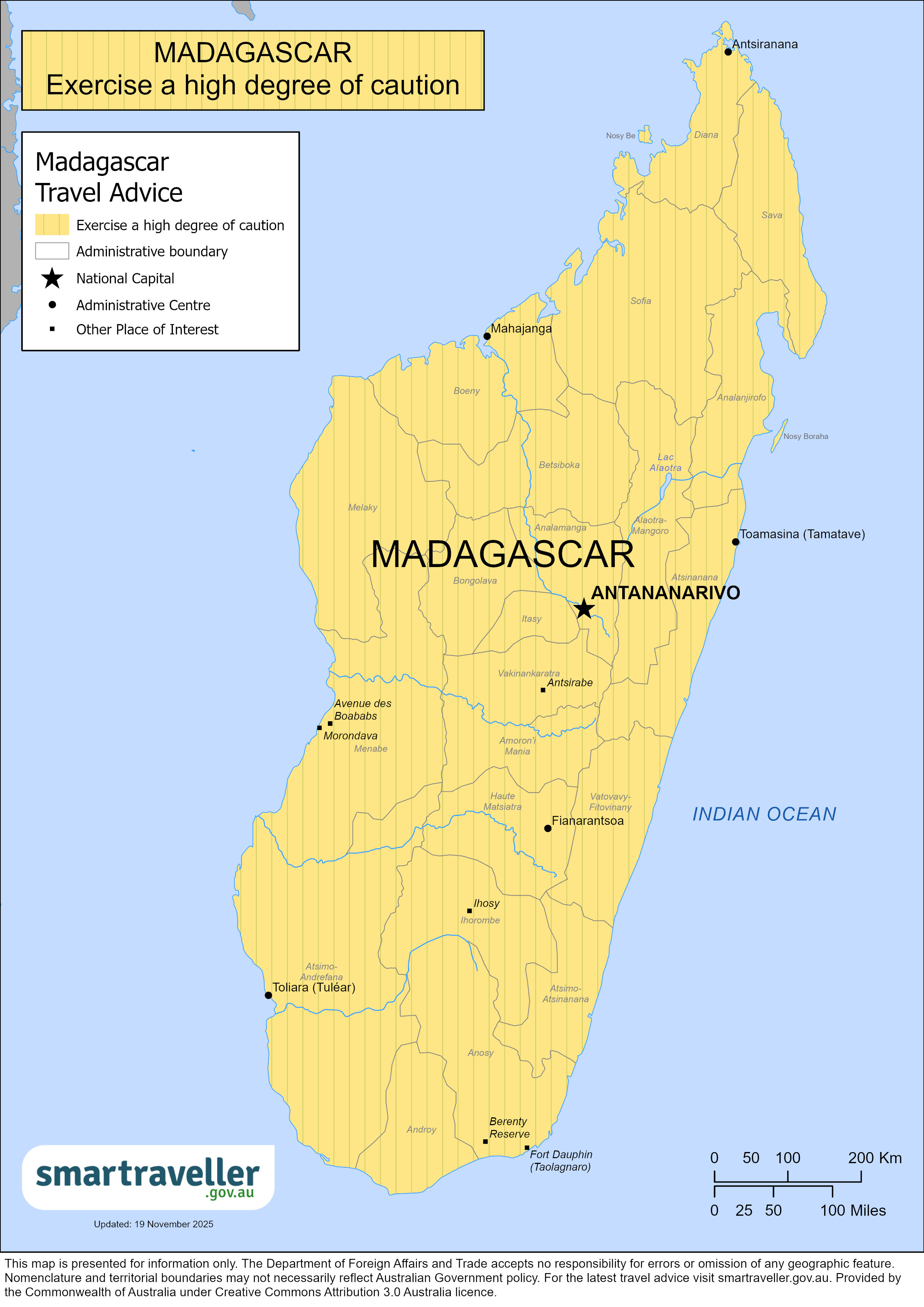Road travel
The standard of roads in Madagascar can be poor. Common hazards include:
- poorly maintained roads and vehicles
- poor or insufficient street lighting
- people and animals roaming on roads.
Following severe cyclones and weather events in 2024, road networks in some regions have been damaged. If you’re planning to drive, check your route is still open.
Carjacking, armed robberies and other crimes are a high risk when travelling by road. Be especially vigilant when travelling on National Routes and avoid driving at night (see 'Safety').
Driver’s licence
You can drive in Madagascar with a valid Australian driver's licence (digital driver's licences may not be accepted) for stays shorter than 90 days. For longer stays you’ll need to apply for an International Driver’s Permit from Australia.
The minimum driving age in Madagascar is 18 years old.
If you plan on driving in Madagascar:
- check your insurance covers driving
- check local traffic laws and practices
- be aware of potential dangers on the roads
- avoid remote roads, particularly at night
- drive carefully and legally
- don't drink and drive
- carry photo identity and vehicle registration documents, as you may be stopped by police.
Motorcycles
There is a high risk of motorcycle accidents in Madagascar, due to the poor state of roads. Avoid riding motorcycles, especially at night.
More information:
Taxis and hired vehicles
Avoid taxis, as these are regularly attacked by armed robbers. This is especially the case for taxi bes (urban minibuses) and taxi brousses (rural minibuses).
Only use hired cars (or limousines) with drivers from recommended providers with a good reputation.
There are no international app-based transport services in Madagascar. Local services are relatively new and should be used with caution.
Public transport
Public transport is not reliable and vehicles are not well maintained. Serious accidents have occurred. Avoid public transport due to the lack of safety and risk of crime.
More information:
Sea travel
Boat travel may be dangerous.
Piracy occurs in the coastal areas of northern Madagascar. Reduce the risk of piracy by adjusting your route if required, and monitoring piracy reports from the International Maritime Bureau.
Several ferries and rivercraft operate in Madagascar. These may be overloaded, poorly maintained and lack life-saving equipment. A lack of navigation skills and unexpected storms have contributed to boating accidents.
To stay safe on water:
- check safety standards are in place
- check there is enough safety equipment for everyone
- wear your life jacket
- avoid travelling after dark
- don't get on overcrowded boats.
More information:
Air travel
DFAT doesn’t give advice about how safe different airlines or flight paths are.
Safety risks and weather events may cause flight delays and cancellations. Contact your travel agent or airline to confirm your plans.
Check Madagascar's air safety profile with the Aviation Safety Network.
More information:



